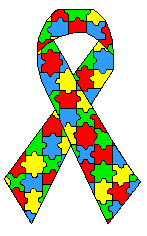 The field of education offers opportunities to work with various students and student populations, and the possibilities to specialize an education degree in autistic support provides training and knowledge to teach in an in-demand and particularly rewarding area of education. With the right certification and degree completion, educators can be prepared to best assist autistic children and adolescents in all academic pursuits.
The field of education offers opportunities to work with various students and student populations, and the possibilities to specialize an education degree in autistic support provides training and knowledge to teach in an in-demand and particularly rewarding area of education. With the right certification and degree completion, educators can be prepared to best assist autistic children and adolescents in all academic pursuits.
Undergraduate Programs in Special Education
To begin preparing for working with children and adolescents with autism spectrum disorders, future educations typically start with a bachelor’s degree in education. A Bachelor of Science in Education with a concentration in Special Education is a solid foundation for beginning a career in this specialized field. Experience is gained through course work and field work, observation, and student teaching, all focused on special education classrooms.
In addition to course work likely focused on the elementary or secondary level of education, undergraduate students in this program will complete courses that prepare for teaching in special education classrooms. Courses include educational psychology, special education frameworks, curriculum and assessment of subject-specific disciplines, learning disabilities and teaching strategies, techniques in teaching for behavioral disabilities, and special education law.
Graduate Programs in Special Education
Many educators will continue on to complete a Master of Arts in Teaching with a concentration in Special Education. Graduate courses are likely to include application of learning theories in special education classrooms, literacy instruction, cultural issues, educational research, language development, developmental psychology, special education assessment and evaluation, and intervention strategies.
Some graduate degree programs also offer options for completing courses specifically focused on autism spectrum disorders. Degree requirements include completion of classes in assessment for instruction of students with autism, high functioning students with autism, autism and young children, instructional methods for students with autism, and autism and social competency. Additional information on preparing to work with autistic students can be found at the National Education Association website.
Post-baccalaureate Certificates in Autism Spectrum Disorders
Completion of a post-baccalaureate certificate in autism spectrum disorders is also an option to consider in order to further specialize skills. These certificates are often offered for early childhood, elementary, secondary, and post-secondary levels of education as well.
These programs are focused on preparing future autistic support educators for diagnosing and identifying skills in developmental areas. Other areas of focus include learning strategies, supporting communication strategies, applied behavioral analysis, and evidence-based intervention. Certificate programs require completion of courses in development of social skills, language acquisition, behavioral interventions, and introduction to autism spectrum disorders in children.
Career Possibilities in and out of the Classroom
These programs prepare graduates for both classroom teaching positions and administrative positions in special education programs in school districts. They also prepare professionals for positions with government agencies, non-profit organizations, and private companies offering autistic support.
Related Resource: Types of Jobs in Special Education
The increasing number of students being diagnosed with an autism spectrum disorder has created a demand for passionate, qualified educators to dedicate themselves to providing a quality education to all students. To specialize an education degree in autistic support, careful consideration should be given to which program will offer the courses most well-suited for building the skills and strengths needed to work in or out of a classroom in order to support students with autism spectrum disorders.
Be the first to comment